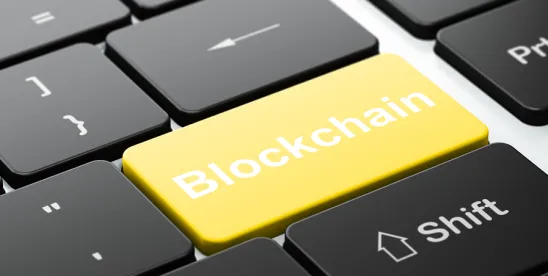There is a lot of buzz around blockchain technology and its potential to revolutionize a wide range of industries from finance and healthcare to real estate and supply chain management. Reports estimate that over $1.4 billion was invested in blockchain startups in 2016 alone, and many institutions and companies are forming partnerships to explore how blockchain ledgers and smart contracts can be deployed to manage and share data, create transactional efficiencies, and reduce costs.
While virtual currencies and blockchain technology in the financial services industry have been the subject of significant debate and discussion, blockchain applications that could transform the energy industry have received comparatively less attention.
Energy Web Foundation Moves Forward with Blockchain Applications in the Energy Sector
-
In a recent blog post, the Energy Web Foundation (“EWF”) outlined its plans for bringing blockchain to the energy sector. As noted in an earlier volume, EWF is a nonprofit organization that is currently developing an open-source, energy-specific blockchain platform, which it hopes will serve as the standard industry platform for blockchain-powered energy applications. According to the blog post, EWF is now focused on four general use cases for its energy blockchain: (1) utility billing; (2) renewable energy credit (“REC”) tracking and exchange; (3) demand response applications; and (4) transactive energy systems.
-
In the blog post, EWF lays the groundwork for how blockchain could revolutionize and optimize existing RECs market(s), which, according to EWF, are hampered by heavy administrative processes, high transaction costs, risks associated with “double-counting,” and the lack of standardization across markets. According to the post, EWF believes that its blockchain platform could be used to standardize and streamline the processes through which RECs are created, recorded, transferred, and retired. More specifically, the immutability and open-source nature of blockchain will help standardize the REC market and promote global adoption, while the use of smart contracts will allow for streamlined and automated transactions and settlements.
-
To prove the value of its blockchain platform, EWF’s REC taskforce will work over the next few months to implement several pilot projects involving (1) the issuance and aggregation of RECs from existing renewable generation using EWF’s blockchain network; (2) the connection of EWF’s blockchain network to existing REC databases and developing applications or smart contracts for trading and tracking RECs through the blockchain; and (3) engagement with global corporate REC buyers to participate in and carry out market demonstrations.
-
EWF’s blog post provides a comprehensive analysis of how blockchain could be applied to REC markets and suggests that scalable applications of blockchain technology for REC trading may not be far off.
Japan Is the Latest Country to Test a Blockchain-Powered Energy Grid
-
Preparations are underway for Japan to test its first blockchain-powered smart grid. According to a recent article, the Japanese energy company, Eneres, will partner with a local software developer in order to develop the proof-of-concept energy blockchain platform, which is intended to serve as a “litmus test” as to whether blockchain could be adopted in Japan. The test is part of the Fukushima government’s initiative to support programs experimenting with renewable energy technologies.
-
The test will involve approximately 1,000 households in Fukushima and other cities in the prefecture, with each household receiving several “smart tap” power strips. The smart power strips will be used collect data from electrical appliances, which will then be uploaded and stored on a blockchain.
-
Through the blockchain, Eneres will be able to analyze the data and remotely turn off household equipment when electricity supply cannot keep up with demand. The hope is that the demonstration will lay the groundwork for a transactive energy grid, where households could automatically buy and sell electricity from one another using the blockchain network.
-
The initiative in Fukushima is the latest in a growing list of pilots aimed at testing blockchain-powered peer-to-peer transactive energy grids. As reported in earlier issues, similar tests are also underway in Australia and New York.



 />i
/>i
